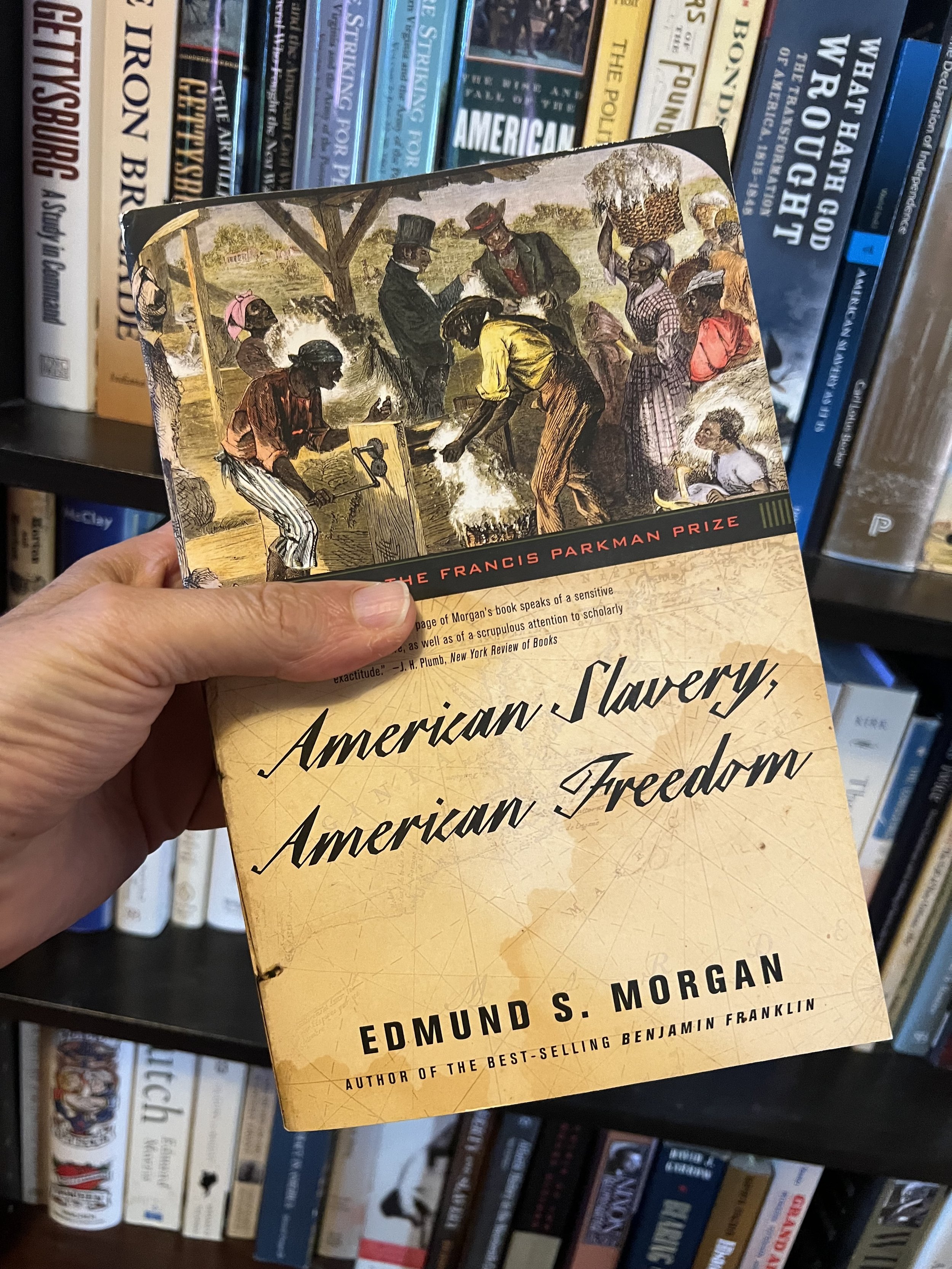A Quick Point About Edmund Morgan's American Slavery, American Freedom
I’ve been doing a lot of series on Instagram these days: collections of short videos concerning a particular theme or event. Most recently I did four videos on Bacon’s rebellion. The videos are arranged as follows and cover the following topics:
Cause and course of the rebellion
Colonial Virginia laws passed in the wake of the rebellion
The legacy of the rebellion and a little historiography
These short videos are the jumping off point for a much larger project that is currently in the works for both history students and history teachers, and should - with a little luck and the grace of God - be ready to public consumption by December.
Something did come up in this last batch in the comments and DMs that I think merits a little further discussion. I wanted to discuss one way of looking at the legacy of Bacon’s Rebellion and the colonial Virginia Slave Codes by looking briefly at one of my favorite books on the subject: American Slavery, American Freedom - by Edmund Morgan.
In short, Morgan suggests that the rebellion revealed the potential for alliances between poor whites and enslaved black people, both of whom were dissatisfied with their circumstances. In response to this threat to the social order, Virginia's elite began to enact laws that reinforced racial divisions, making it increasingly difficult for enslaved blacks and their descendants to gain freedom and social mobility.
Morgan highlights the paradoxical nature of colonial Virginia, where the pursuit of freedom for white settlers went hand in hand with the institution of slavery, what contributed to the development of a racially stratified society. In Morgan's view, the history of early Virginia demonstrates how the pursuit of freedom for one group contributed to the oppression of another, laying the foundation for the complex and enduring legacy of race, class, and freedom in America.
So in the strangest of ways, white colonials built the foundation of American freedom on their whiteness. Elites passed the laws, which codified black slavery as a racial caste system and ensured freedom for the lower classes of white people. So by virtue of race, white colonials were definitively free - and thus, in a sense, they were equal. Of course there was a great deal in inequality within the broader community of white colonials. Class differences clearly determined unequal access to resources, opportunities, and position in the social hierarchy. So we have to keep this in mind as well.
But as Morgan tells us (and you can make of this what you will…)
“Aristocrats could more safely preach equality in a slave society than in a free one. Slaves did not become the leveling mobs, because their owners would see to it that they had no chance to…and because Virginia’s labor force was composed mainly of slaves, who had been isolated by race and removed from the political equation, the remaining free laborers and tenant farmers were too few in number to constitute a serious threat to the superiority of the men who assured them of their equality.”
That’s his argument anyway - I am happy to discuss.
With compliments,
Keith
